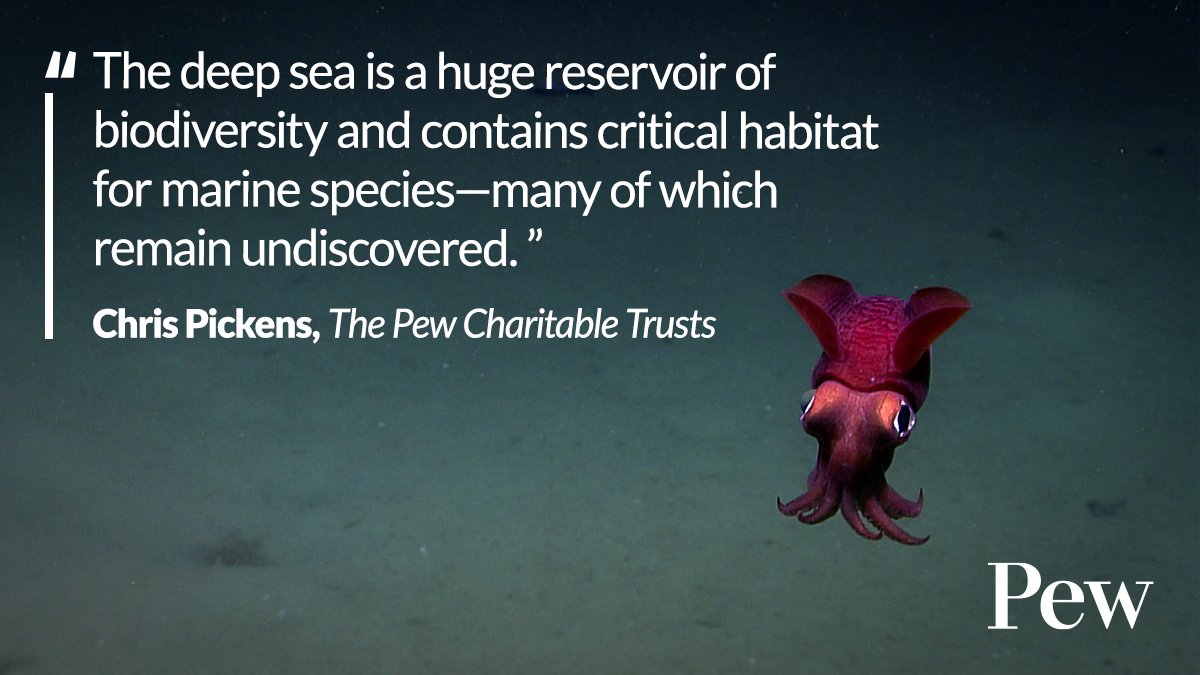
Pew Europe
@PewEurope
Working in Europe to promote science-based policies to end overfishing and support ocean conservation. 📨 Subscribe: https://t.co/ASnWhJfgh0
ID:50665309
http://www.pewtrusts.org/en 25-06-2009 14:48:47
24,0K Tweets
12,7K Followers
1,1K Following



Up to 92% of creatures in the deep sea are unnamed—and thousands have yet to be discovered!
#DeepSeaMining threatens to destroy these creatures. A new study uncovers dozens of outstanding issues in the rules intended to protect this marine life. pew.org/48RBtEJ


Southern resident killer whales face extinction within two generations, according to new research led by #PewMarineFellow Rob Williams.
One solution? Mandatory ocean noise caps would allow killer whales to hunt prey more effectively. pew.org/4b6t8xs


Bad news: Research by #PewMarineFellow Rob Williams finds that southern resident killer whales are facing accelerating extinction risk.
Good news: Mandatory ocean noise caps could aid recovery. pew.org/3U7I1bS




🥤 The urgency couldn't be clearer: the exponential rise in plastic pollution calls for bold action.
Right now, the United Nations is working on a global #PlasticsTreaty . They must make sure it is ambitious and comprehensive. #INC4 pew.org/3w877PX

The exponential growth of plastic pollution demands urgent action.
As the United Nations works on a global plastics agreement, leaders must ensure the #PlasticsTreaty is ambitious and comprehensive. Our planet's future depends on it. #INC4 pew.org/3w877PX

Establishing marine protected areas in the high seas could help amplify and enhance the effectiveness of domestic protections.
Our Nichola Clark and Audrey Tan 🐋 discuss critical role of #HighSeas marine protected areas in combating overfishing. pew.org/4aLwQwq

Harmful fisheries subsidies:
💰 Total $22 billion annually
🐟 Deplete fish populations
🎣 Harm local, artisanal fishers
We have an agreement to #StopFundingOverfishing , but now, it needs to be ratified. pew.org/4awvrdh

From production to disposal, the United Nations #PlasticsTreaty has the potential to revolutionize our approach to #PlasticPollution .
But for the deal to be effective, it must be ambitious, inclusive, and comprehensive. Here’s how. 👇 #INC4 pew.org/3U8GDpG




It’s hard “for seafood wholesalers and retailers to determine if the fish they buy and sell was caught legally and sustainably,” says our Gina Fiore & Katy Hladki.
The seafood supply chain has a transparency problem—but seafood buyers can help solve it. pew.org/49VYHJg

Fact: Food and Agriculture Organization found that less than ⅔ of fish stocks were at a sustainable level in 2019.
Seafood retailers and buyers must push fisheries management organizations—responsible for ~91% of ocean fisheries—for more sustainability in the seafood supply chain. pew.org/3JyB2Uz


Southern resident killer whales face extinction within two generations, according to new research led by #PewMarineFellow Rob Williams.
One solution? Mandatory ocean noise caps would allow killer whales to hunt prey more effectively. pew.org/3U7I1bS

